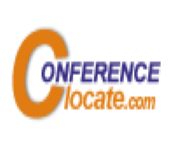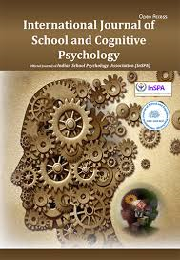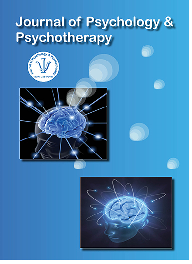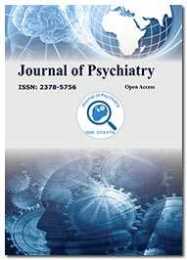Theme: Innovative approaches and Psychological Impact of Quarantine in COVID patients
Clinical Psychologists 2020
Conference Series LLC Ltd welcomes all the individuals who are in the field of Psychology to the 5th International Conference on Clinical and Counseling Psychology Webinar on 09-10 June 2020 which will consist of Keynote speeches, Symposia, Exhibition, Speaker sessions, and Poster presentations.
Clinical Psychologists conference is based on the theme “Innovative approaches of Clinical Psychology for better patient care.”
The organizing committee is gearing up for an exciting and informative conference program with topics related to Mental Health, Psychiatry, Neurological aspects of psychology, Public Health, and many more currently trending aspects of Clinical Psychology.
Why attend?
With so many people all around the globe trying to understand the human psychology at a fundamental level and applying it to the Healthcare aspect, this is one of the great opportunities to gather and share the knowledge collected through individuals from different universities, associations, medical centers, etc. The Clinical Psychologist 2020 at Singapore will coordinate, disperse information, and meet with recurring patterns and potential investigators and get name affirmation at this 2-day event. Broadly acclaimed keynote & plenary speakers, the most recent frameworks, methodologies, and the most current updates in the Clinical and Counseling Psychology field are indications of this conference.
Clinical Psychologists 2020 provides excellent opportunities to share views, knowledge, collaboration, and networking.
Clinical Psychologists 2020 brings together Psychologists, educators, and researchers, as well as students and industry representatives from around the world, providing them with a platform to discuss the various new and innovative clinical approaches in psychology. This year's conference will provide a foundation for networking with eminent personalities.
Target audience
- Directors of Psychology Associations
- Psychiatry Scientists/Research Professors
- Physicists/Chemists
- Junior/Senior research fellows of Psychology Field / Nursing Science/ Health Care.
- Clinical Psychology Students
- Directors of Pharmaceutical companies
- Clinical Pharmacists
Benefits:
- All accepted abstracts will be published in the supporting journals of the conference and Conference Book Proceedings.
- Each abstract will receive a DOI number provided by CrossRef
- Opportunity to conduct Workshop with your team members
- One to one interaction with Keynote Speakers, OCM and Eminent personalities for the future course of work
- Opportunity to chair a session
- Certification by the organizing committee
- Individual keynote Page will be created to get more visibility for your scientific research
- Huge Benefits on Group Registration and much more.
1.Clinical Psychology
Clinical psychology, branch of psychology concerned with the practical application of research methodologies and findings in the diagnosis and treatment of mental disorders.Clinical psychologists classify their basic activities under three main headings:
- Assessment,
- Treatment, and
- Research
2. Counseling Psychology
Counseling Psychology is a specialty within professional psychology that focuses on facilitating personal and interpersonal development throughout one’s life. This branch of psychology pays particular attention to emotional, social, vocational, educational, health-related, developmental, and organizational concerns.
The practice of Counseling Psychology helps people improve their well-being, alleviate distress and maladjustment, resolve crises, and increase their ability to function better in their lives. With its attention to both to normal developmental issues and problems associated with physical, emotional and mental disorders, the specialization holds a unique perspective in the broader practice-based areas of psychology.
3.Neuropsychology
Neuropsychology is a close combination of Neurology and Psychology. This branch of brain science mostly studies the concepts of how physiological and chemical changes in the brain and nervous system can affect the psychological behavior of a person. Modern Neuropsychology deals with the brain chemicals such as hormones, neurotransmitters which affect the nerve signal transmissions.
It is mostly of experimental treatment approach, neuropsychologists usually follow a trial and error method. It also deals with other conditions such as Alzheimer's and traumatic brain injury and learning difficulties such as dyslexia.
4.Biological Psychology
Bilogical Psychology or Behavioural Neuroscience is the only subject that studies our thoughts, feelings, emotions and actions from a biological view point. It states that all behavior is controlled by central nervous system and brain functions. Biological psychologists try to understand the same focusing mainly on perception, sensation, motivated behavior such as hunger, thirst, sex control of movement; learning and memory; sleep and biological rhythms; and emotion. IT also takes into count physical factors such as metabolism, diseases, drug ingestion and diet which also show effect in brain.
5.Genetic Behavior
Genes are like the blueprints for the body makeup of an organism just like how they are form a building. Genetic Behavior or psychogenetics try to understand the influence and link between genetic composition and behavior of an individual. It is established almost all of behaviours are affected by the genetics.
6.Social Psychology
It is something that analyzes how someone behaves in different social situations and what causes them to do so. Social Psychology talks about how your thoughts, actions and the choices you make are influenced by the people around you (society for that matter). For example you are comfortable, loud and talkative around a group of friends and reserved and calm around your colleagues and superiors at work. It deals with different aspects as such:-
- Group behavior
- Social perception
- Leadership
- Nonverbal behavior
- Conformity
- Aggression
7.Educational Psychology
Educational Psychology deals with behavior of a person during learning process from a cognitive aspect. Educational psychology helps the teacher to understand the development of his pupils, the range and limits of their capacities of learning. It’s works by incorporating other branches like Developmental Psychology, Behavioral Psychology and Cognitive Psychology.
8.Evolutionary Psychology
Evolutionary Psychology was first used by William James in his text “The Principles of Psychology” Over centuries humans have adapted and evolved so does our brains. Evolutionary Psychology is a theoretical approach that tells all our psychological traits are products of natural selection, it is applicable to all the living beings which has a brain and the ability to think. Evolutionary psychologists argue that our brain, thinking, emotions has been evolved just like how the computers have evolved. Evolutionary psychology has a close relation to Anthropology, Sociology, Archeology, Ethology and Philosophy.
9.Creative and Critical Thinking
Creative thinking is one among the many though processes that human possess during cognitive state. It is also known as divergent thinking and is the ability to find imaginative and unorthodox solutions that one run into everyday life. In today’s society, success mostly found for those who differentiate themselves in creative way from others. Creative thinking is a process of observing, analyzing, interpreting all the given information and arriving at a logical solution. Critical thinking has no involvement of emotion; it is making decisions that are best fit for the situation favoring none beyond right or wrong.
10.Psychological Disorders
Mental disorders (or Psychological Disorders) are conditions that affect your thinking, feeling, mood, and behavior. They may be occasional or long-lasting (chronic). They can affect your ability to relate to others and function each day. The causes of mental disorders are often unclear. Theories may incorporate findings from a range of fields. Mental disorders are usually defined by a combination of how a person behaves, feels, perceives, or thinks.
11.Mental Health
Mental health is included our psychological, emotional, social wellbeing, everywhere and it directly affects in how we feel, think and act. It also determines in making choice, how we handle stress and relate with others. From childhood to adolescent through adulthood its effect is important in every stage of life. If anyone experience mental health problems, their entire coordination goes interrupted includes their thinking capability, mood, behavior, relationships and even physical health. A strong mental health is very important to balance between their activities and efforts also in achieving psychological resilience to enjoy their life.
12.Factors effecting Psychological Disorders
Although the exact reason for mental illness is not known, it is becoming clear day by day through researches that there are numerous factors which in combination cause psychological disorders. These factors are like: biological, psychological and environmental factors. Some mental illness is linked to abnormal behavior of nerve cells within brain circuits which communicate through chemicals named Neurotransmitter. By tweaking those chemicals through medicines, psychotherapy or other medicinal procedures, can help brain circuits run more efficiently.
13.Psychotherapy
It is one of the psychological treatment methods. Psychotherapy generally helps patients to understand their feelings better like what makes them positive which then will be helpful in overcoming their psychological and emotional burdens to lead a better life.
It is a collaborative effort between an individual and a psychologist to build a relation which provides a supportive environment that allows people to talk openly with someone who is neutral and non-judgmental. The patient and psychologist will work together to identify and change the thought and behavior patterns that are keeping the patient from feeling your best.
A psychotherapist could also be a psychologist, a family therapist, a licensed clinical worker or psychological counselor, psychoanalyst, or psychiatrist.
Almost all sorts of psychotherapy involve developing a therapeutic relationship, communicating and creating a dialogue, and dealing to solve the problematic thoughts or behaviors.
14.Mind- Body Correlation
Through the mind-body health connection, our thoughts and emotions can play a central role
Attitudes, beliefs and emotional states right from love and compassion to fear and anger can trigger a chain of reactions that affect our biochemistry, heart rate and the activity of every cell and organ
The mind-body connection treats
15.Transactional analysis
Transactional Analysis is one of the foremost accessible theories of modern-day psychology. Transactional Analysis was founded by Eric Berne, and therefore the famous 'parent adult child' theory remains being developed today.
In therapy, transactional analysis is often used to address one's interactions and communications with the aim of building and reinforcing the thought that every individual is effective and has the capacity for positive change and personal growth.
The transactional analysis integrates the theories of psychology and psychotherapy because it has the elements of psychoanalytic, humanist and cognitive ideas.
16.Behavioral Therapy
It refers to one of the aspects of Clinical Psychotherapy that mainly focuses on the learned behaviors of the person and how different surroundings and environment influences them.
People who practice this therapy are called behaviorists or behavior analysts whose primary goal is to analyses the behavioral traits of the person and help to overcome the troublesome ones. It mainly focuses on the idea that all behaviors are learned from the environment. Due to this, behavioral therapy tends to be highly focused. The behavior itself is the problem and the goal is to teach patients new behaviors to minimize or eliminate the problems.
Behavioral therapy often over lapses with the cognitive psychotherapy and the cognitive behavioral therapy combine both
17.Relaxation
Relaxation we are stating here relates to achieving a state of physiological relaxation or calm with decreased activity in the sympathetic nervous system and is characterized by decreased heart rate, blood pressure, brain wave frequency and metabolism.
Physical relaxation aim is to undo the tension and progressively relax muscles and muscle groups. Psychological relaxation is when the mind is free of stress and distraction.
Relaxation techniques are
Psychology is a branch of science that involves various methods to measure and image the brain activity. Neuroscience is a subject focusing on molecular, cellular, developmental, structural, functional, and medical aspects of the nervous system. The constant evolution of neuroscience research is due to the advancements in other branches like medicine, Pharmacy, biology, biomedical Engineering.
Clinical Psychology largely relies on various devices to collect information regarding the brain like pathophysiology of different neurological disorders as such Alzheimer’s, dementia, stroke, migraine, Parkinson’s diseases, brain tumors and other traumatic disorders of nervous system.
These devices consist of different instruments that are required for neuroscience-based experiments. Various types of electrophysiology instruments and imaging instruments are utilized to map the brain and examine the brain activity.
The global Psychology market size was valued at US$ 26,593 million in 2017, and is expected to witness a compound annual growth rate of 3.9% over the a period of 2018 – 2026. The major reason for this steady growth is the increase in the prevalence of neurological disorders resulting in the high demand for medical diagnostics, understanding of pathophysiology for better treatment which in turn boost the demand for neuroscience devices.
According to World Health Organization (WHO) 2016 report, nearly 6 million people die due to stroke every year and around 80% of these deaths occur in low and middle income countries. Moreover, over 50 million people suffer from epilepsy and 47.5 million people from dementia, with 7.7 million new cases, annually worldwide.
Conference Highlights
- Clinical Psychology
- Counseling Psychology
- Neuropsychology
- Biological Psychology
- Genetic Behavior
- Social Psychology
- Educational Psychology
- Evolutionary Psychology
- Creative and Critical thinking
- Psychological Disorders
- Mental Health
- Factors effecting Psychological Disorders
- Psychotherapy
- Mind- Body Correlation
- Transactional analysis
- Relaxation
- Behavioral Therapy
To share your views and research, please click here to register for the Conference.
To Collaborate Scientific Professionals around the World
| Conference Date | June 09-10, 2020 | ||
| Sponsors & Exhibitors |
|
||
| Speaker Opportunity Closed | |||
| Poster Opportunity Closed | Click Here to View | ||
Useful Links
Special Issues
All accepted abstracts will be published in respective Our International Journals.
- Journal of Psychology & Psychotherapy
- International Journal of School and Cognitive Psychology
- Journal of Psychiatry
Abstracts will be provided with Digital Object Identifier by









